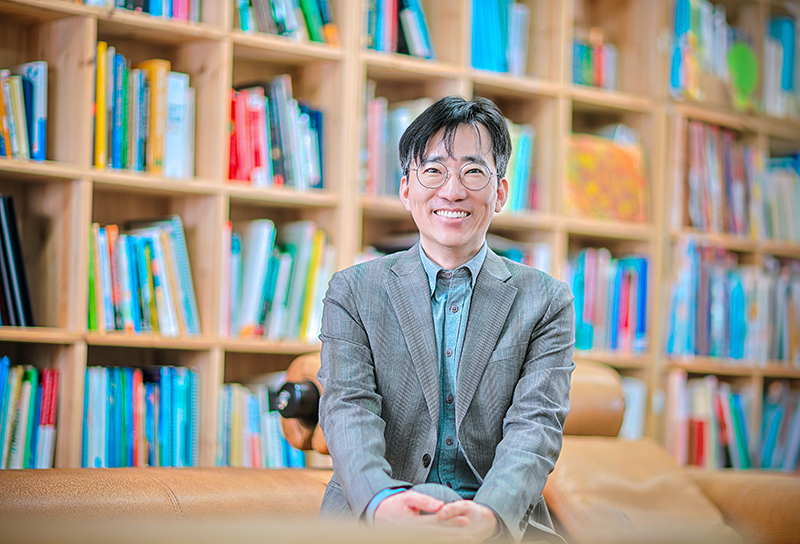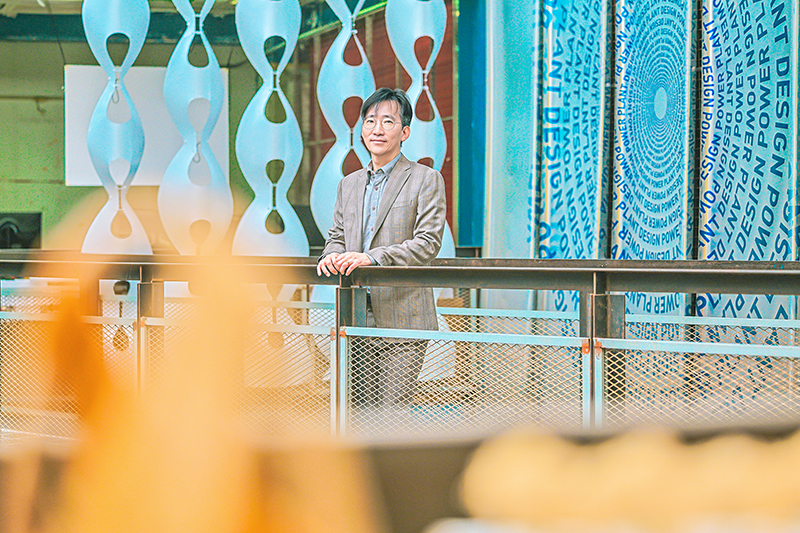header
Education News
Exploring the Relationship Between Buildings and People
- WRITER 학무부총장실
- VIEW 112

2023 Kyung Hee Fellow in the research category: Professor Geun Young Yun, Department of Architecture Engineering
Professor Geun Young Yun was selected as a Kyung Hee Fellow (researcher) in recognition of his contribution to world-class research results in the fields of urban climate change and energy efficiency in buildings. His main research interest is the relationship between buildings and people, as he has investigated the lives of people living in buildings and conducted multi-faceted research on how to provide building users with a comfortable and healthy environment, how people use buildings, and how the building environment affects people.
Modern buildings consume a large amount of energy and are a major cause of global warming. Buildings and groupings of buildings also affect the surrounding environment and the urban environment. Professor Yun explained, “We are expanding our research starting from people and architecture to building energy generated at the city level.” In 2017, the research bore fruit by joining the top promising new 100 technologies that will lead Korea in 2025 selected by the National Academy of Engineering of Korea.
The technology in question is a deep learning-based building operation algorithm optimized to reduce the urban heat island (UHI) effect. Cities have higher temperatures than green rural areas outside the city due to the concentration of high rise buildings and the dense population centered around them. For example, the temperature in Seoul is up to five degrees Celsius higher than the rural areas outside the metropolis. Professor Yun assumed that the heat emitted by buildings was the main cause of the UHI and sought technological solutions to reduce it.

Industry-academic cooperation is also underway utilizing his expertise in building energy efficiency. Professor Yun has worked together with Samsung Electronics to install a HVAC energy management control system in the Global Campus Central Library, drastically improving the building's sustainability and energy efficiency.
Professor Yun also served as an editor for a top journal in the field of building energy and indoor environment and actively promoted academic exchanges. The latest trend in the field of building energy is to expand the scope of building efficiency to the level of a city block or larger instead of focusing on each individual building, using the computational power of AI to process the huge amount of digital data.
Curiosity about newness is the driving force behind Professor Yun’s continued research over a long period of time. He said, “When I was an undergraduate, I was fascinated by natural lighting and analyzed the light environment, and when I entered graduate school, I became interested in how indoor air moves. During my study abroad period, the scope of my research was expanded to fields that had not been attempted in the built environment field at the time, such as researching building-integrated solar power generation. Looking back, I would say that my convergence attitude of seeking out and importing new research methods from relevant adjacent academic fields is what has supported my journey in research up to this point.”
Professor Yun emphasized the importance of undergraduate studies for students who dream of pursuing a career in research. He said, “The undergraduate program is practically the only time when you can learn academic fields in a systematic and integrated manner. It is important to really do your best on your undergraduate courses and have a holistic perspective to set up a solid foundation upon which you can build later on. While doing that, you also need to find a field that interests you and you can have fun with. If you have fun researching, success will naturally follow.”